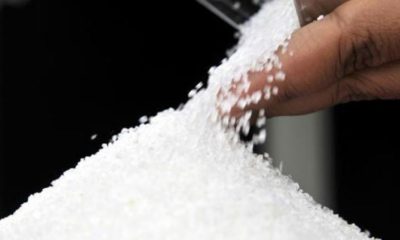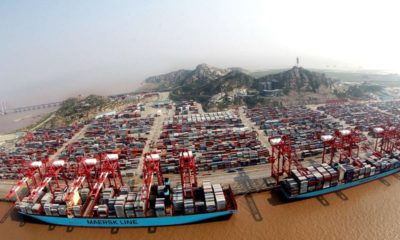As part of the efforts to protect the sugar industry, which is governed by the Nigerian Sugar Master Plan (NSMP), the federal government has banned the importation of refined sugar and its derivatives from the nation’s Free Trade Zones (FTZs).
The prohibition move, which came through a directive from the Minister of Industry, Trade and Investment, was conveyed in a letter by the Nigerian Ports Authority (NPA), Lagos Port Complex, Apapa, Lagos, to one of the terminal operators of the Lagos Port Complex (LPC), Apapa, Lagos.
The NPA letter dated April 8, 2021, and titled ‘RE: Prohibition of Importation of Sugar from the Free Trade Zones into the Nigerian Customs Territory,’ was signed by Mr. Buba Jubril for the Port Manager, Lagos Port Complex.
According to the letter: “We have for reference a letter from Honourable Minister of Industry, Trade and Investment ref: HMIT1/GEN/ CORR/008/ VOL. I, dated February 15, 2021, on the above subject.
“It has recently come to our notice that due to the recent location of a Sugar Refinery in a Free Trade Zone, Refined Sugar is being imported into the Nigerian Customs Territory under the concession granted to enterprises in the Free Trade Zones to export 100 percent of their output to the Nigerian Customs Territory, and this is a real potential threat to the goals of the Nigerian Sugar Master Plan (NSMP).
“The Nigeria Sugar Industry is governed by the Nigerian Sugar Master Plan (NSMP). The NSMP provides a framework for motivating investment in the local production of Refined Sugar by securing the Nigerian Sugar market for investors in the Backward Integration Program (BIP). It does this by providing import sugar allocations for Raw Sugar to recognised investors based on the performance on the BIP and guided recognition of their installed refining capacity.
“Your Terminal is hereby informed by this letter that, in order to protect our national interest and ensure the returns in the Federal Government’s investment in the NSMP are realised, and in line with extant laws and regulations of the Federal Government of Nigeria, importation of Refined Sugar and all other sugar derivatives from the Free Trade Zones into the Nigerian Customs Territory is here prohibited by the Honourable Minister, Ministry of Industry, Trade and Investment,” the NPA letter stated.
It added that “In view of the above, your terminals are by this letter directed to ensure strict compliance with this directive. Please accept as always the assurances of our esteemed regards.”

 Forex2 weeks ago
Forex2 weeks ago


 Naira2 weeks ago
Naira2 weeks ago
 Naira4 weeks ago
Naira4 weeks ago
 Company News4 weeks ago
Company News4 weeks ago
 Billionaire Watch1 week ago
Billionaire Watch1 week ago




 Naira2 weeks ago
Naira2 weeks ago




 Naira1 week ago
Naira1 week ago




 Naira4 weeks ago
Naira4 weeks ago














